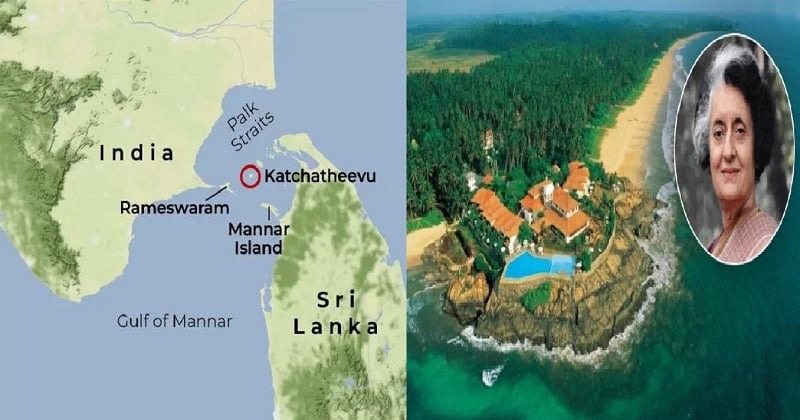 The Katchatheevu Island Controversy
The Katchatheevu Island Controversy
The Katchatheevu Island controversy stands as a testament to the complexities of territorial disputes and the intricacies of diplomatic agreements. Rooted in the 1974 agreement between India and Sri Lanka, this contentious issue has sparked debates, protests, and legal battles over the years.
Historical Background: 1974 Agreement between India and Sri Lanka
In 1974, the then Prime Minister of India, Indira Gandhi, signed an agreement with Sri Lanka, relinquishing control of the Katchatheevu Island to Sri Lanka. This move was met with significant opposition and criticism from various quarters, particularly in Tamil Nadu, where concerns were raised about the impact on Indian fishermen’s livelihoods and territorial integrity.
Initial Opposition and Concerns Raised
As news of the agreement spread, voices of dissent grew louder. Opposition leaders, including DMK parliamentarian Era Sezhiyan, vehemently opposed the deal, labeling it as detrimental to national interests. The concerns raised primarily revolved around the perceived surrender of territory without adequate consideration for Indian interests.
Tamil Nadu’s Involvement in the Agreement
Despite opposition at the national level, it is notable that Tamil Nadu’s then Chief Minister, M. Karunanidhi, reportedly gave his tacit approval to the agreement, signaling a nuanced political landscape where regional and national interests intersected.
Indira Gandhi’s Diplomatic Moves
Indira Gandhi’s diplomatic maneuvers in finalizing the agreement with Sri Lanka were significant. Her administration faced the daunting task of balancing international relations with domestic concerns, particularly in the face of vehement opposition from Tamil Nadu politicians and activists.
Meeting between Karunanidhi and Indian Officials
Reports indicate that Karunanidhi had prior knowledge of the agreement, suggesting a level of engagement between Tamil Nadu’s leadership and Indian officials. However, the extent of his involvement and the clarity of information shared remain subjects of debate.
Karunanidhi’s Alleged Approval
Karunanidhi’s alleged approval of the agreement underscores the complexities of regional politics and the challenges of navigating competing interests within a federal structure. His stance on the issue continues to be scrutinized, reflecting the enduring impact of the controversy on Tamil Nadu’s political landscape.
Lack of Awareness among Central Government Officials
While Karunanidhi may have been privy to the negotiations, documents reveal a lack of awareness among central government officials regarding the agreement’s specifics. This discrepancy highlights the need for improved communication and transparency in matters of national significance.
Current Status of the Dispute
The Katchatheevu Island dispute remains unresolved, serving as a reminder of the enduring complexities in India-Sri Lanka relations. Efforts towards resolution have been sporadic, with legal and political avenues yielding limited results amidst simmering tensions.
Impact on India-Sri Lanka Relations
The controversy surrounding Katchatheevu has had a lasting impact on bilateral relations between India and Sri Lanka, with periodic flare-ups exacerbating existing tensions. The issue has tested diplomatic ties and underscored the need for sustained dialogue and engagement.
Legal and Political Implications
From a legal standpoint, the Katchatheevu agreement raises questions about sovereignty, territoriality, and the rights of affected communities. Politically, it has become a rallying point for regional parties and activists, shaping electoral narratives and policy agendas.
Public Perception and Protests
Public perception of the Katchatheevu issue varies, with sentiments ranging from staunch opposition to calls for pragmatic solutions. Protests, demonstrations, and advocacy efforts continue to highlight the significance of the issue in Tamil Nadu’s socio-political landscape.
Efforts towards Resolution
Despite the challenges, efforts towards resolving the Katchatheevu dispute persist. Calls for renewed dialogue, mediated negotiations, and grassroots engagement underscore a growing recognition of the need for a holistic approach to conflict resolution.
International Attention and Mediation Attempts
The international community has occasionally taken note of the Katchatheevu issue, with calls for peaceful resolution and respect for maritime boundaries. However, substantive mediation attempts remain elusive, leaving the onus on India and Sri Lanka to find mutually acceptable solutions.
The Need for Dialogue and Resolution
In conclusion, the Katchatheevu Island controversy epitomizes the complexities of territorial disputes and the challenges of diplomacy in a pluralistic society. As India and Sri Lanka navigate their shared history and future aspirations, the need for sustained dialogue, empathy, and cooperation remains paramount.
 Suspense Crime Sach Ka Dam
Suspense Crime Sach Ka Dam


